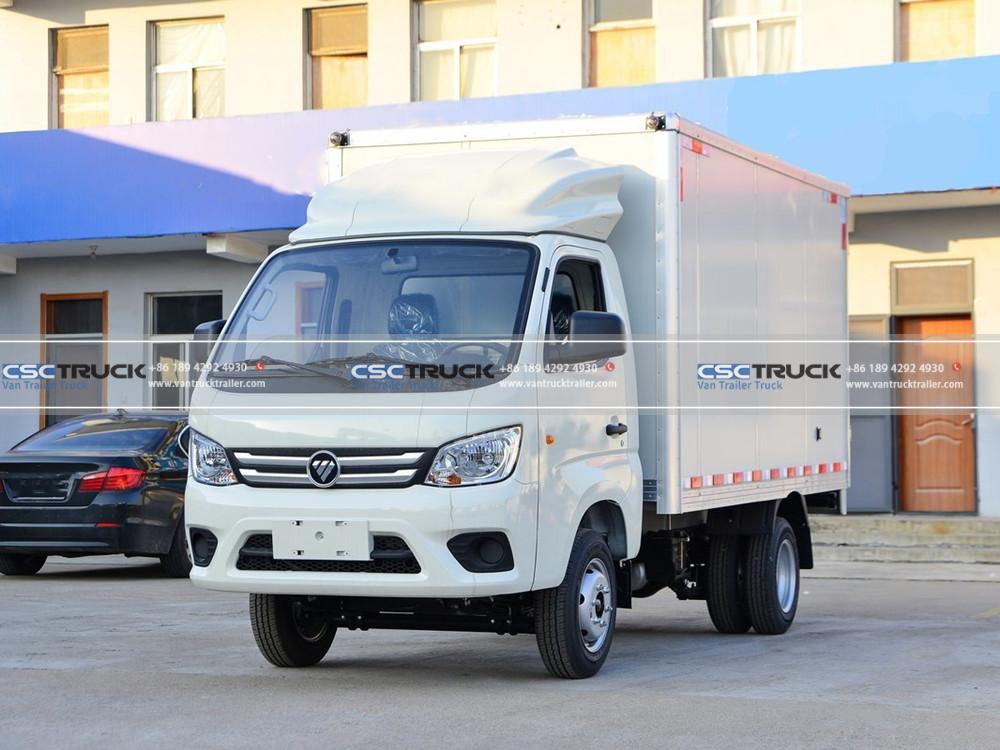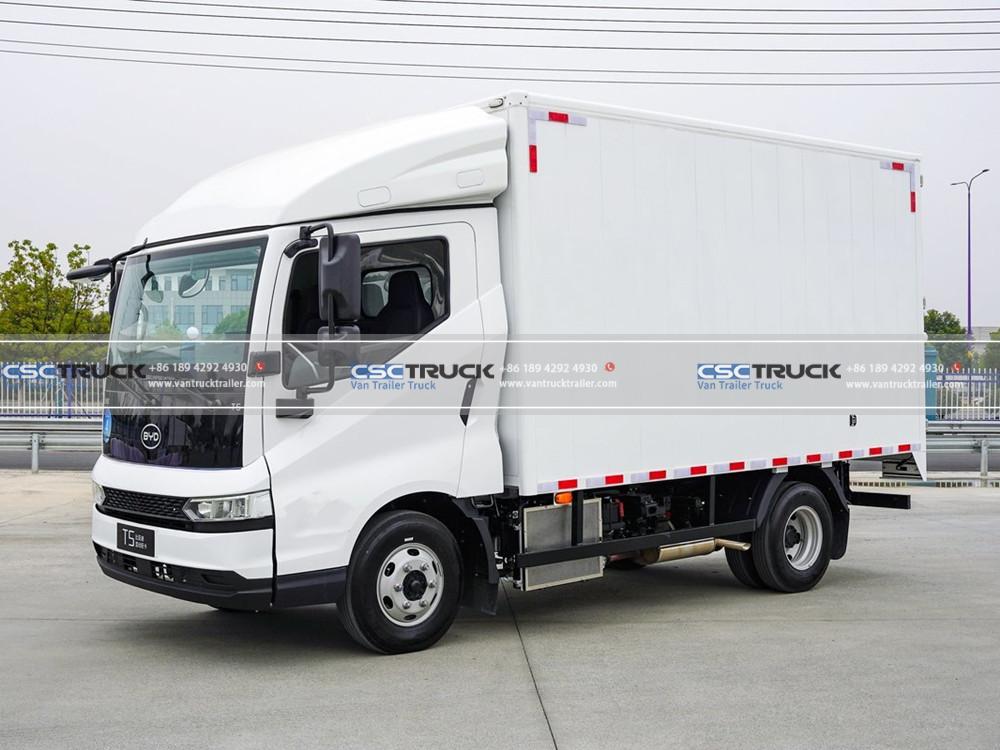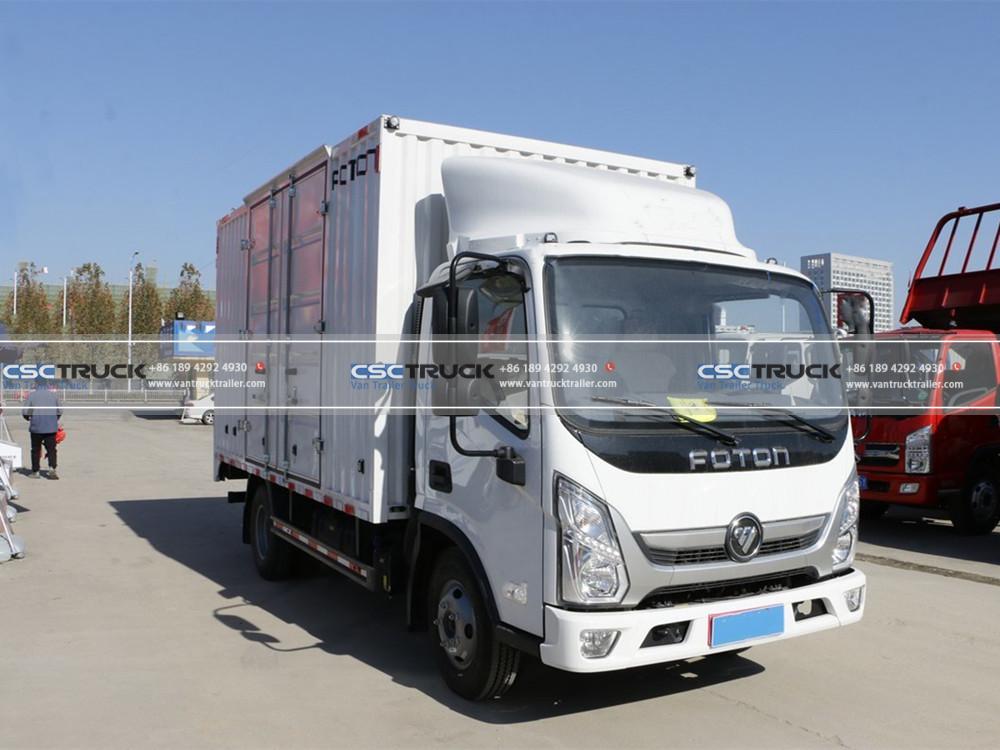In the world of commercial transport, efficiency, reliability, and versatility are paramount. Among the various vehicles available, the cargo truck stands out as a cornerstone of logistics and supply chain operations. Whether it’s transporting goods across cities, states, or even countries, cargo trucks offer a range of advantages that make them indispensable for businesses. From their ability to handle large volumes of goods to their adaptability for specialized needs, cargo trucks are a vital asset for industries ranging from retail and manufacturing to agriculture and healthcare. This blog post explores the key benefits of using cargo trucks for commercial transport, highlighting why they remain a preferred choice for businesses worldwide.
1. Capacity: Handling Large Volumes with Ease
One of the most significant advantages of using a cargo truck for commercial transport is its impressive capacity. Unlike smaller vehicles, cargo trucks are designed to carry large volumes of goods, making them ideal for businesses that require bulk transportation. This capability is particularly valuable for industries such as retail, manufacturing, and wholesale, where the timely delivery of large quantities of products is essential.
The spacious interiors of cargo trucks allow for efficient use of space, enabling businesses to transport more goods in a single trip. This not only reduces the number of trips required but also lowers fuel costs and minimizes the environmental impact of transportation. For businesses that operate on tight schedules, the ability to move large volumes of goods quickly and efficiently is a game-changer.
Moreover, cargo trucks can be configured in various ways to maximize their capacity. For example, a dry van truck is a popular option for transporting non-perishable goods, offering a fully enclosed and secure space that protects cargo from weather and theft. This adaptability ensures that businesses can tailor their cargo trucks to meet specific transportation needs, further enhancing their efficiency and effectiveness.
2. Versatility: Adapting to Diverse Transport Needs
The versatility of cargo trucks is another key factor that makes them a preferred choice for commercial transport. These vehicles can be customized to handle a wide range of cargo types, from raw materials and machinery to perishable goods and hazardous materials. This adaptability ensures that businesses across various industries can rely on cargo trucks to meet their unique transportation requirements.
For industries that deal with temperature-sensitive goods, such as food and pharmaceuticals, a refrigerated truck is an invaluable asset. These specialized cargo trucks are equipped with temperature-controlled compartments that maintain the optimal conditions for perishable items, ensuring their quality and safety during transit. The ability to transport goods at controlled temperatures is critical for businesses that must comply with strict regulatory standards and deliver products in pristine condition.
In addition to refrigerated trucks, cargo trucks can also be outfitted with other specialized features, such as lift gates, ramps, or secure locking systems. These enhancements make it easier to load and unload heavy or bulky items, further expanding the range of goods that can be transported. Whether it’s delivering construction materials to a job site or moving medical supplies to a hospital, cargo trucks offer the flexibility needed to handle diverse transport needs.
3. Cost-Effectiveness: Maximizing Efficiency and Savings
For businesses, managing transportation costs is a critical aspect of maintaining profitability. Cargo trucks offer a cost-effective solution that balances capacity, efficiency, and affordability. Compared to other modes of transport, such as air or rail, cargo trucks provide a more economical option for moving goods over short to medium distances.
One of the primary cost-saving advantages of cargo trucks is their ability to consolidate shipments. By transporting large volumes of goods in a single trip, businesses can reduce the number of vehicles needed and lower overall transportation costs. This consolidation also minimizes fuel consumption and reduces wear and tear on vehicles, further enhancing cost savings.
Additionally, cargo trucks are relatively easy to maintain and repair, thanks to their straightforward design and widespread availability of parts. This simplicity translates to lower maintenance costs and less downtime, ensuring that businesses can keep their operations running smoothly. For small and medium-sized enterprises (SMEs) that operate on tight budgets, the affordability and reliability of cargo trucks make them an attractive choice for commercial transport.
4. Reliability: Ensuring Timely and Secure Deliveries
In the fast-paced world of commerce, timely and secure deliveries are essential for maintaining customer satisfaction and building a strong reputation. Cargo trucks are renowned for their reliability, offering businesses a dependable solution for transporting goods. Their robust construction and powerful engines enable them to handle long distances and challenging road conditions, ensuring that deliveries are made on time and in good condition.
The secure design of cargo trucks also plays a crucial role in protecting goods during transit. For example, a dry van truck provides a fully enclosed space that shields cargo from external elements such as rain, dust, and theft. This level of security is particularly important for businesses that transport high-value or sensitive items, as it minimizes the risk of damage or loss.
Furthermore, modern cargo trucks are equipped with advanced tracking and monitoring systems that allow businesses to monitor their shipments in real time. These systems provide valuable insights into the location, condition, and status of goods, enabling businesses to address any issues promptly and ensure smooth delivery operations. The combination of reliability, security, and transparency makes cargo trucks a trusted choice for businesses that prioritize customer satisfaction.
5. Sustainability: Supporting Eco-Friendly Transport Solutions
As environmental concerns continue to grow, businesses are increasingly seeking sustainable solutions for their transportation needs. Cargo trucks are evolving to meet this demand, offering eco-friendly options that reduce emissions and minimize environmental impact. Many modern cargo trucks are available with alternative fuel options, such as electric, hybrid, or compressed natural gas (CNG) powertrains, which significantly lower greenhouse gas emissions compared to traditional diesel engines.
The adoption of electric and hybrid cargo trucks is particularly beneficial for urban environments, where air quality and noise pollution are major concerns. These vehicles produce fewer emissions and operate more quietly, contributing to cleaner and quieter cities. For businesses that operate in urban areas, switching to eco-friendly cargo trucks can enhance their reputation and align with their sustainability goals.
Even for businesses that continue to use traditional fuel-powered cargo trucks, there are steps they can take to reduce their environmental impact. For example, optimizing routes, improving fuel efficiency, and implementing regular maintenance practices can help minimize emissions and lower fuel consumption. By adopting these sustainable practices, businesses can demonstrate their commitment to environmental responsibility while also benefiting from cost savings.
The cargo truck remains a cornerstone of commercial transport, offering a range of advantages that cater to the diverse needs of businesses. From their impressive capacity and versatility to their cost-effectiveness, reliability, and sustainability, cargo trucks provide a comprehensive solution for transporting goods efficiently and securely. Whether it’s a refrigerated truck for perishable goods or a dry van truck for non-perishable items, these vehicles are designed to meet the unique demands of modern logistics. By leveraging the benefits of cargo trucks, businesses can streamline their operations, enhance customer satisfaction, and contribute to a more sustainable future.



